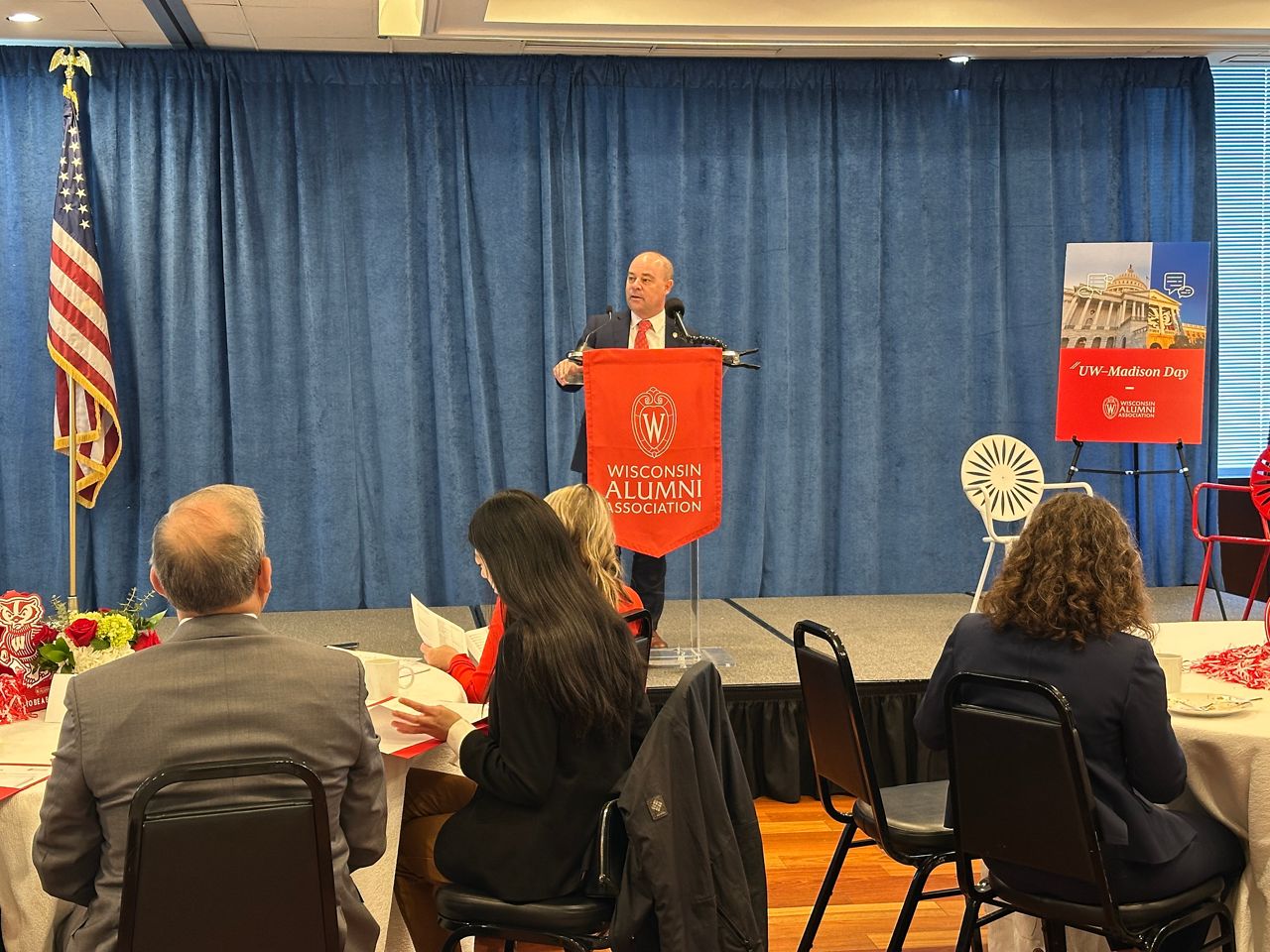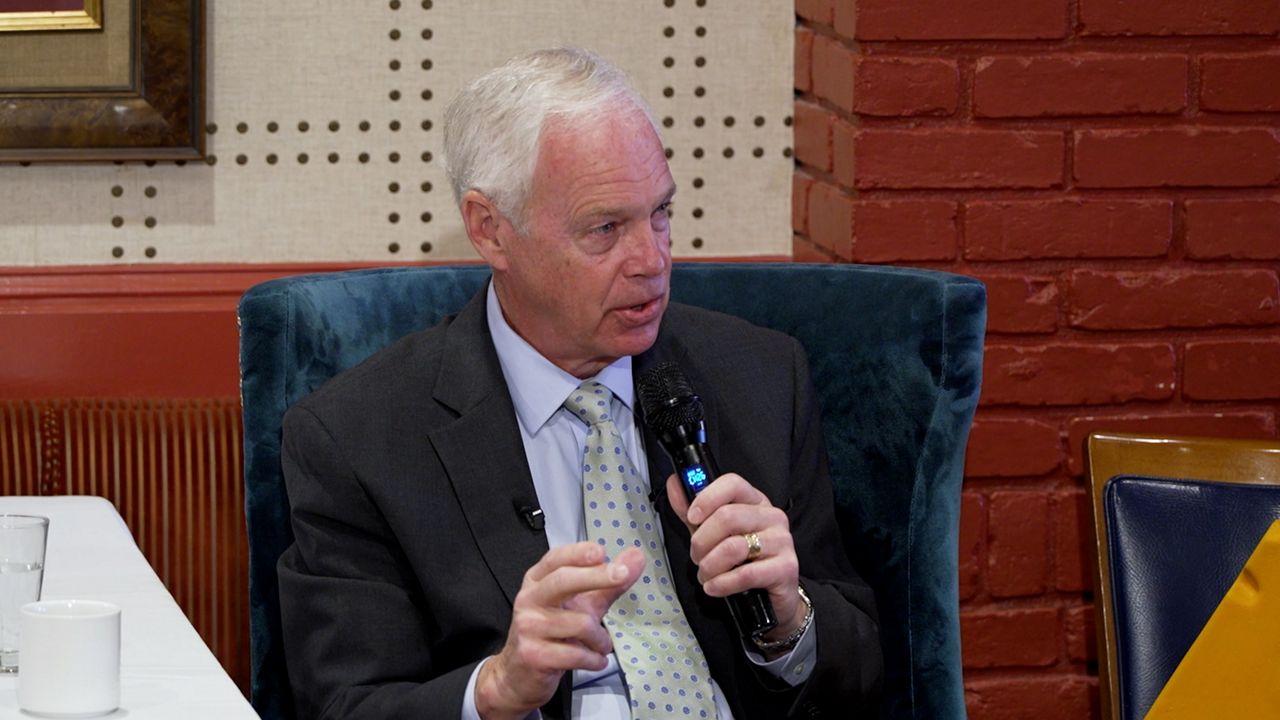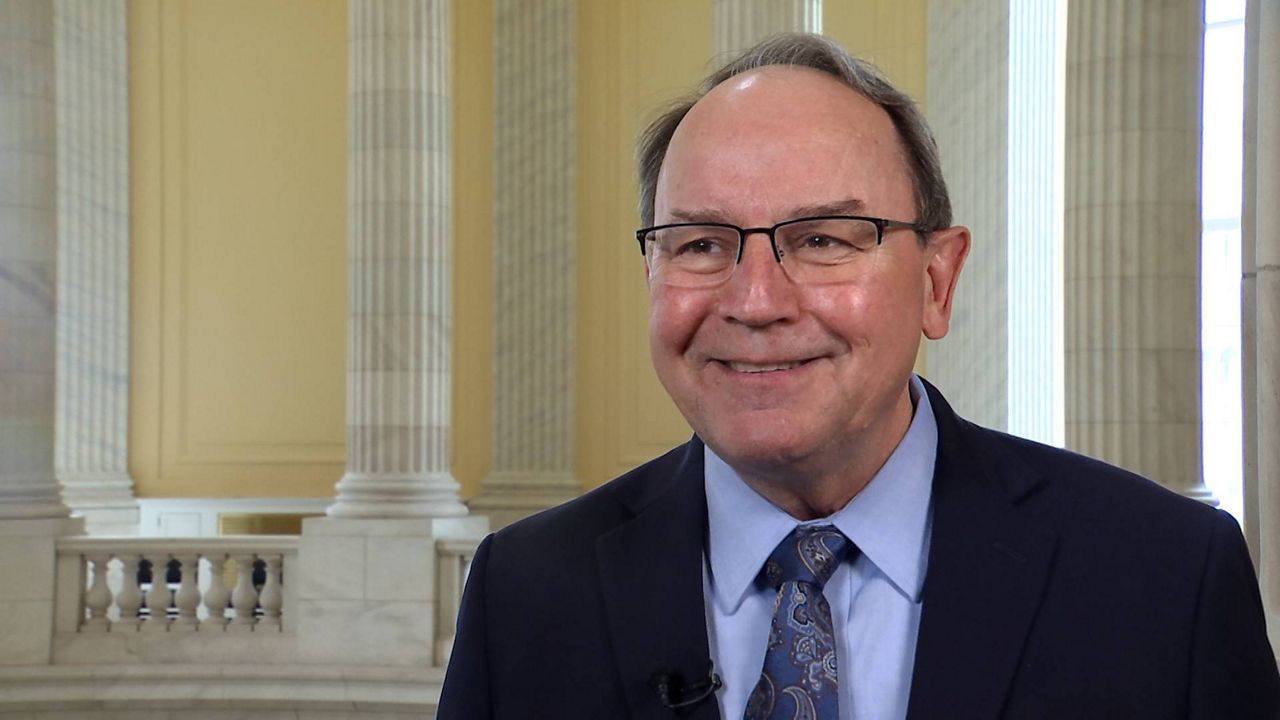WASHINGTON — Members of the UW-Madison community gathered Wednesday morning in Washington, D.C. ahead of their lobbying day on Capitol Hill.
“The reality is we’re certainly facing some interesting, challenging times here at the federal level,” said Craig Thompson, vice chancellor of university relations at UW-Madison. “There's obviously potential cuts to research and other programs, and there's just a great deal of uncertainty on campus.”
UW-Madison is involved in several legal challenges against the Trump administration for pausing or cutting research funding that had been provided by the National Institutes of Health.
According to the university, terminated projects include studies examining how social media affects teenagers, preventing future coronavirus pandemics, and looking at the mental health disparities among transgender people. Thompson called UW-Madison a “research powerhouse,” having risen from eighth to six place nationally for research expenditures last year. But maintaining that status could be reliant on federal funding.
Madeline Gonzalez-Diaz is a junior at the university who is studying both political science and Spanish. She has participated in research about student safety on campus and said a reduction in support is “disheartening.”
“I know that’s a huge reason why students do come to Madison,” she said. “[I’m] hoping to speak on their behalf and represent the university… We love being part of government research, and I’m hoping to again advocate for that today.”
Paul McCann graduated from UW-Madison in 1981 with a mechanical engineering degree. Now retired after a career in the paper industry and construction, McCann works with the engineering group on campus.
“I think medical research has been the highlight—sort of and been in the forefront—but I think work that gets done in other departments on campus, and especially in the engineering department, is also at risk,” McCann said. “There have been projects that have committed monies that they expected were coming in from the government, and now they have to say, ‘I don’t know that I can pay those bills. I don’t know that I’m going to get that money.’ So, it’s created some anxiety and some hesitation, and all of that just creates a distraction that’s unnecessary in my opinion.”
Thompson, the vice chancellor, said there’s a 28-member group at UW-Madison examining the potential impact of President Donald Trump’s executive orders and actions on the university. UW-Madison is also developing plans to respond to other potential funding scenarios, including a sweeping freeze in federal support to the University. Just this week, the Trump administration froze $1 billion in support for Cornell University and more than $700 million in support for Northwestern, the latest in a series of funding freezes for major research universities. Last school year, 27% of UW-Madison’s funding came from the federal government.

“We’re concerned,” Thompson said. “We’re trying to make sure that we’re keeping the lines of communication open, dialog open and that if there’s any questions that folks have, that we answer them quickly.”
Junior Josh Juarez, who’s studying political science, said his goal Wednesday was to try to bridge the gap between people and politicians.
“They’re just people like us sitting down in a room and making a decision,” he said. “And we should be able to be part of that and be able to talk to them about that.”
Another goal of the group was to express to lawmakers how important student financial aid is, and stress that the university would like to maintain its current level of support. Thompson said two-thirds of students at UW-Madison graduate with no debt.
“I’m an in-state student, so the cost is a little bit less for me,” Juarez said. “But I still come from a family where I’m still bearing some of the cost for school and still having to take out student loans [and] still have to pay those off at some point later. So any way we can provide more aid to students and make sure that the formulas for calculating financial aid are up to date and not outdated… is always going to be good.”
This all comes as student visas are being canceled. On Tuesday, six were terminated for current and former international students at UW-Madison.
Thompson said since March 28, there have been 22 visas terminated. He said the university is reaching out to provide any information they can to the students who have been affected, but that they don’t have any specific answers yet so it’s trying to gather more information.
“It gives me concern,” McCann said. “First of all, those things shouldn’t be a surprise, right? Those students—those people—are people. They should be able to understand what’s going to happen in their lives. They should be able to plan. They should be able to live without any kind of a fear or threat of that type of action being taken. If it’s going to be taken, let them know what the process is. Let them be able to defend the reasons that they’re in this country and the reasons that they should stay and the value that they bring. Don’t just keep this gray cloud over their heads and then come down without any kind of understanding or explanation as to why they need to uproot their lives and move out of the country.”
This isn’t just an issue in Wisconsin. The State Department responded Tuesday to a question about student visa cancellations across the U.S.
“We don’t discuss individual visas because of the privacy issues involved,” said Tammy Bruce, a spokesperson for the State Department. “We don’t go into statistics or numbers. We don’t go into the rationale for what happens with individual visas. What we can tell you is that the department revokes visas every day in order to secure our borders and to keep our communities safe, and will continue to do so.”












